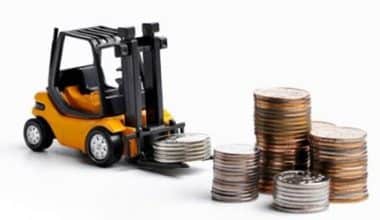Whether you run a home or a small food business, delivering quality meals to your customers is good but getting insurance is of utmost importance. This is because the food business comes with great risks. That’s why protecting restaurants with the best kind of business insurance is important because it helps cover unexpected costs and stay open if things go wrong. In addition, atmosphere, mood, and location are just a few of the other factors that can be difference-makers in why people choose to satisfy themselves at your restaurant business over others. That is to say, if you’re working in the food business, insurance is essential for your operation, the public, your equipment, and your own peace of mind. Stay tuned to learn about the cost of food business insurance.
Overview
Food liability insurance takes preventive prep to a whole new level by providing you with an abundance of protection from unforeseen accidents and events. Hence, food business insurance is a must-have for every restaurant, especially for those that have inherent risks. Wherever possible, entrepreneurs should also look beyond this basic type of insurance and get some more industry-specific insurance to cover more specific situations. Typically, one of the best ways to keep those positive reviews of your restaurant is by having food business insurance or food liability insurance.
What Insurance Do You Need to Make Food?
Almost all food businesses need general liability insurance and, if they have employees, workers’ compensation insurance. Some restaurant businesses may also need commercial property insurance, inland marine, liquor liability, and commercial auto.
Food Business Insurance Cost
The cost of food business insurance might be as low as $200 per year for a small business that doesn’t need much coverage. Or, it could be many hundreds of dollars per year or more. Also, the cost of business liability insurance depends on several factors, like your location, industry, number of employees, coverage limits, deductible, and endorsements.
The nature of your restaurant, what you serve, where you serve, your type of clientele, and the size of your business will typically impact the cost of food business insurance. The larger the enterprise, the more expensive your insurance policy. Hence, to reduce your costs, only pay for what you need.
Food Business Insurance Cost: Factors to Consider
In most cases, your insurance rate is calculated based on a variety of different factors. Below are factors that contribute to the cost of food business insurance policies.
#1. Number of Staff
Similar to gross sales, the size of a restaurant’s staff will give an insurance company solid insight into the exposure at the establishment. Carriers also consider the number of full-time and part-time employees, in addition to the total annual payroll. The number of staff will also determine the costs of your employment practices liability insurance,
#2. Value of Properties
The cost of your insurance will change based on the value of your property. When evaluating the commercial property to insure, consider the following:
- Building
- Restaurant Equipment
- Furnishings
- Computers (point-of-sale-systems)
- Art
- Signage
- Stock
#3. Size Of the Business
The size of the business accounts for a large influence on the cost of insurance. If your business has multiple locations and hundreds of employees, you will need more coverage. A business owner’s insurance is typically better for small businesses that have few places. The ranking of a “small business” varies, however. The size consideration also depends on the industry.
#4. Coverage Limits
The more coverage you have, the more your insurance premiums will be. Basic insurance covers general liability and property insurance, but there are often additional coverages you can purchase including employee dishonesty coverage, business income coverage, equipment breakdown, and more.
#5. Location
Your insurance rate often shows the risk level of your business location. There’s a higher risk of property damage if your business is located in a hurricane or flood-prone zone, which means a higher premium on your commercial property policy. Your business location also impacts how much you pay for business insurance coverage. Some states may require you to purchase certain types of insurance that are optional elsewhere.
#6. Your Income
Insurers will look at your annual income when calculating your premium. You will pay a higher premium rate if your business records indicate a high annual income since the income lost following a business interruption may be huge.
How Much Is Restaurant Insurance in Texas?
General Liability Insurance for a small restaurant in Texas can cost between $500 and $6,100 in annual premiums.
Home Food Business Insurance
Home food business insurance protects you from the cost of claims that comes from your business. These claims include unlabeled food allergens, food poisoning, customer injury, equipment damage, and more. But Just because you make food from your home doesn’t mean you are immune from the risks associated with working in the industry.
Hence, without coverage, you will have to pay those expenses out of your own pocket. This is where insurance for the home food business can help. Protect your business and gain peace of mind as you do what you love. Because each business is different, there are different insurance policies for different scenarios. Therefore, ensure to do your research based on what type of food you will be selling,
What Insurance Do I Need To Sell Food From Home?
To sell food from home you should include cottage food law insurance on your insurance policy. This insurance can protect you from the expensive cost of claims associated with your business operations, such as cooking or baking, communicating with customers, or sending out your products. Liability Insurance for home businesses can include:
- General Liability Insurance
- Product Liability Insurance
- Inland Marine Insurance (Tools & Equipment)
- Damage To Premises Rented
- Cyber Liability Insurance
- Free & Unlimited Additional Insureds
- Trailer Endorsement
How Much Does Home Food Business Insurance Cost?
Home food business insurance starts at $25.92 per month but the price can be affected by several factors. These factors include the:
- Insurance limits you select
- State(s) you operate in
- Gross business revenues of your business
- Length of your coverage
Can a Food Blogger Write off Groceries?
Don’t expect the IRS to allow you to write off your grocery list. Keep your personal expenses distinct from your business expenses. Shop separately for your blog, where possible, and try to buy specifically for your business purpose: don’t buy a dozen eggs, use one and try to write off the other eleven.
Small Food Business Insurance
Food business insurance is a combination of policies that protect your business from any losses you may face as a result of the liability of a first-party property claim. The core policies are general liability and property. You know, as a food business owner, that every day is different and presents unique challenges that require quality insurance tailored to your business. So, being in the food business can come with great risks. That’s why protecting your small business with the best kind of food business insurance is important.
How to Get Small Food Business Insurance
As you want to begin your search into finding the best food business insurance for your small business.
#1. Conduct Research
Research what insurance is required in your state and township to legally operate a food business. You can also visit insurance company websites to get an idea of the coverage options they offer. If possible, chat with other food business owners in your area for advice on which insurance companies and coverage options they selected.
#2. Do a Business Assessment
Compile a list of your assets with their value, payroll records, truck registration, and employee driving records. By gathering your important documents and records before you shop for insurance, you’ll be able to get a more accurate quote to help you make your decision.
#3. Get Quotes
Reach out to various insurance providers with the same information and records to more easily compare direct quotes. You may want to check with 3-5 providers to get an idea of the options available in your area. You can also use a broker to contact providers for you and present the information in a way that is easy to understand and compare.
#4. Review Quotes and Purchase
Layout the quotes side by side and choose the provider that grants you the most coverage within your budget. Complete the insurance purchase with your intended provider.
#5. Renewal
You’ll need to renew your insurance policy either annually or semi-annually. In the period between purchasing and renewing your insurance, make sure that you and your staff are following safety protocols closely to keep your premium down. At renewal, bring up coverage needs or instances where your budget is overextended with your insurance agent to make adjustments to your policy.
Best Insurance for Restaurants
Restaurant businesses are challenging in the sense that it needs many important components to be a success. The best insurance for restaurants is considered one of the important ingredients for running a successful restaurant of any size. Thus, the best insurance for restaurants is a general term that covers different types of insurance including general liability insurance, commercial policies, and workers’ compensation. The cost of insurance also varies depending on the size of the business and the limitation of resources.
Typically, the best insurance for restaurants helps cover unexpected costs and assists you to stay open if things go wrong. In general, it covers things like replacing spoiled food due to a broken fridge to a lawsuit from a customer who gets sick from contaminated food. In addition, reputation is everything, so protecting your public perception is a key element to your success. So, the best way to achieve that is by keeping those positive reviews of your restaurant coming by having the best insurance for restaurants.
How to Choose the Best Insurance for Restaurants
To shop for the best business insurance for restaurants, here are the best options:
#1. Contact Providers Directly
You can purchase your food business insurance directly from an insurance provider and contact companies to get a business insurance quote based on your needs. Also, depending on the provider, you may be able to get a quote online or over the phone
#2. Use an Online Marketplace
Business insurance marketplaces like CoverWallet and Simply Business streamline the shopping process. You can enter information about your company and the coverage that you’re looking for, receive quotes from different insurance providers, and compare those quotes to find the best option for your business. Many of these marketplaces give you the option to get a quote online or over the phone and also provide customer support to discuss your coverage needs and help you through the process.
#3. Use a Broker
An insurance broker can offer more personalized assistance in shopping for food business insurance. You’ll discuss your needs with the broker and they’ll get multiple quotes with coverage options from different providers. Then, you can compare and discuss the quotes in order to choose the right policy for your business.
#4. Compare Providers
I recommend getting multiple quotes from different providers before making a decision. When comparing providers, you’ll want to look at factors such as:
- Policy coverage
- Limits of liability
- Price
- Reviews
#5. Buy Policies and Keep them Updated
Once you’ve found the best policy and company, you can purchase your food business insurance. After you’ve purchased your policy, you’ll want to make sure you know when your payments are due, as well as how to manage your coverage including taking actions like filing a claim, adding endorsements, or requesting a certificate of insurance.
Types of the Best Insurance for Restaurants
Each restaurant, bakery, coffee shop, or catering business is different, and different insurance policies exist to cover their unique needs. The following are other popular coverage options that restaurateurs use to run their businesses successfully:
#1. Commercial Auto Insurance
If you use a vehicle for your food-based business, transporting food or food-related equipment, this policy will protect you from damages arising from a car accident such as bodily injury or other vehicle-related mishaps.
#2. Workers’ Compensation Insurance
Worker’s compensation insurance covers restaurant employees’ lost wages and medical expenses should they become injured on the job and it is a requirement for most businesses with employees. Workers’ compensation laws vary by state, so be sure to check your state’s workers’ compensation law requirements before purchasing a policy.
#3. Host Liquor Liability Insurance
If you’re in the food business or your establishment sells alcohol, having host liquor liability insurance will cover you in the event patrons become intoxicated and cause injury or harm to themselves or someone else. This policy also covers you for broken or damaged property caused by intoxicated patrons.
#4. General Liability
General liability insurance is often the first policy food and beverage business owners purchase. It provides protection against lawsuits, accidents, and oversights that might otherwise financially devastate your business.
#5. Commercial Property Insurance
Commercial property insurance protects your physical assets building, equipment, inventory, tools, furniture, and personal property and covers financial losses due to property damage from fire, theft, or loss. However, except you own your commercial property outright meaning there is no lien or mortgage against it, your lender will require you to have this coverage.
Do I Need an LLC for a Food Blog?
LLCs are a simple and inexpensive way to protect your personal assets and save money on taxes. You should form an LLC when there’s any risk involved in your business and when your business could benefit from tax options and increased credibility.
References
- fliprogram.
- nerdwallet.
- huckleberry.
- .insureon.
Related Articles
- RESTAURANT MARKETING: What You Should Know and Strategies
- RESTAURANT MARKETING: What You Should Know and Strategies
- How To Open A Restaurant In 2023: Free Tips & How to Open It with No Money
- RESTAURANT MANAGEMENT SYSTEM: Guide to Effective Restaurant Management
- BEST RESTAURANT INVENTORY MANAGEMENT SOFTWARE 2023
- AUTOMOTIVE MARKETING: Top Strategies & Ideas to Drive More Sales 2023
- HARVEST TIME TRACKER: Harvest Software Reviews & Pricing 2023






